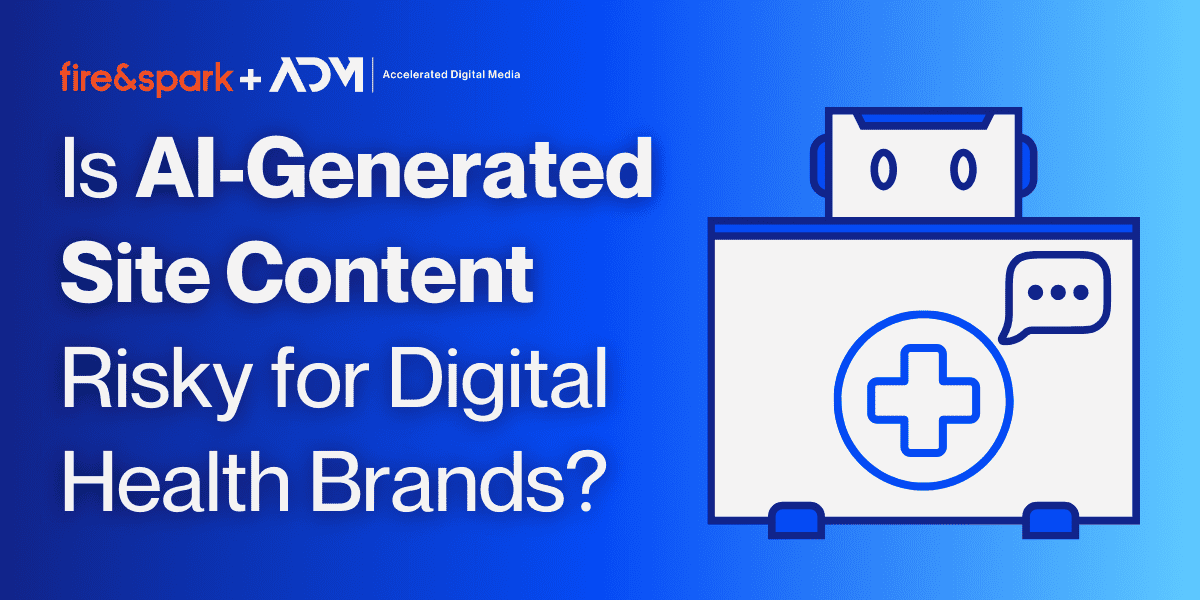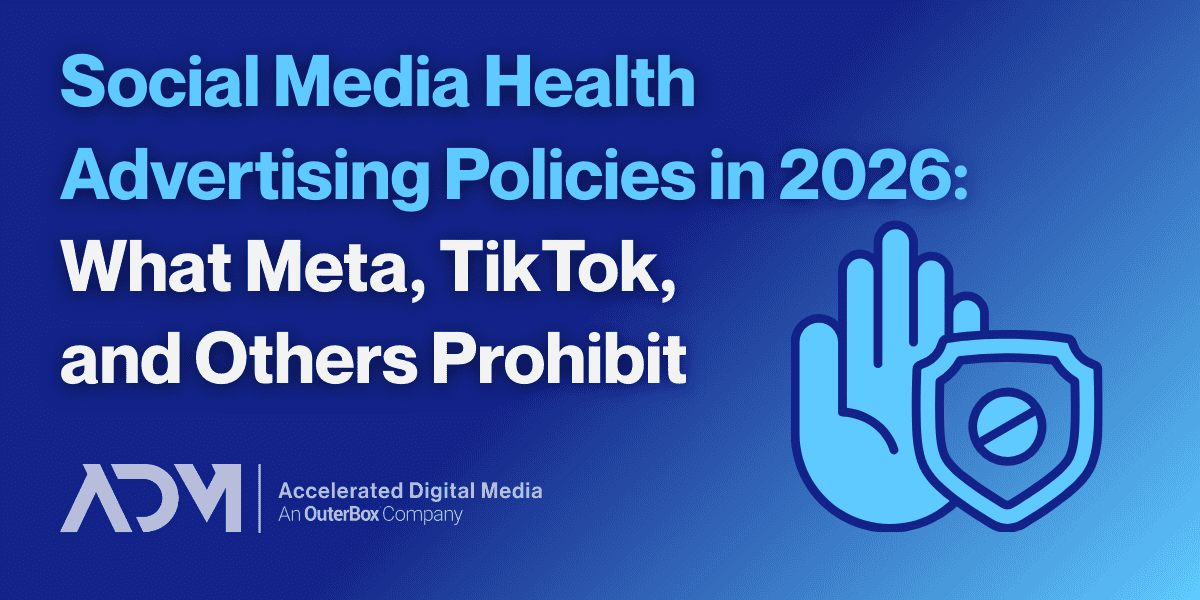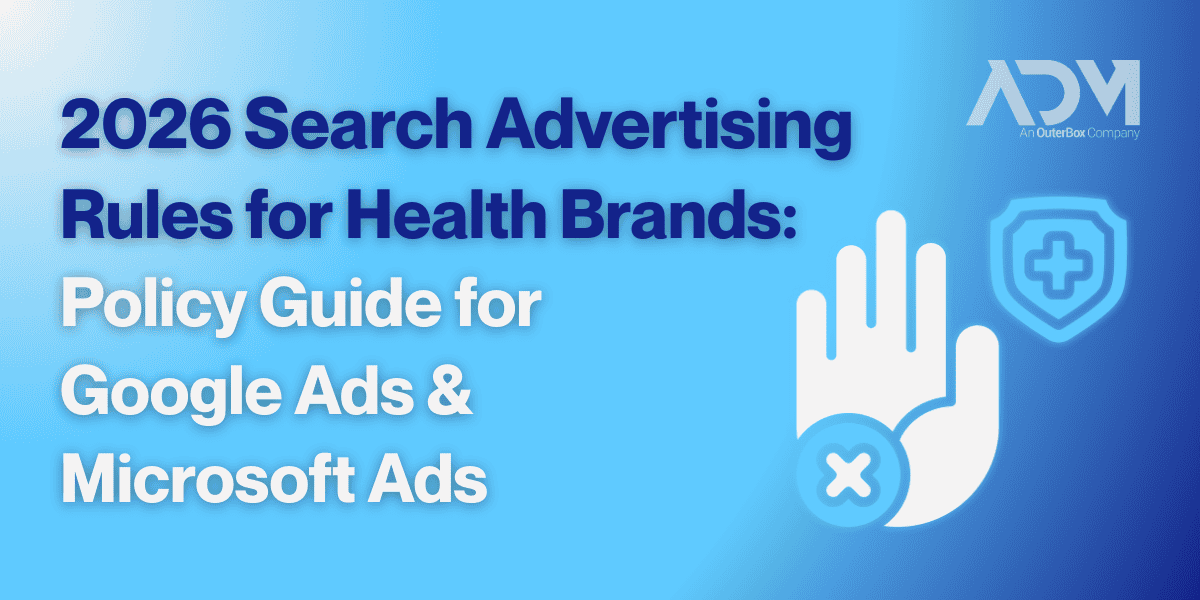The rise of generative AI tools has made navigating SEO more complex than ever, especially for digital health brands. While many companies use tools like ChatGPT to produce SEO-friendly content, digital health brands need to exercise greater caution.
Google Given the potential for misinformation that could negatively impact a searcher’s health, Google (as well as LLMs like ChatGPT or Perplexity) holds digital health content to particularly strict ranking standards.
As a digital health growth leader, you might wonder: Should I trust AI to create content for my audience? Is Google penalizing AI-generated content?
The short answer: AI content is unlikely to get you flagged… if you’re strategic and thoughtful.
However, whether content will “get flagged” is the wrong question to ask.
The right question:
Will AI-generated content rank well in search engines, get cited by LLMs, and, most importantly, resonate with my audience?
AI-Generated Content Isn’t the Problem—Mediocre Content Is
Generative AI, by its nature, summarizes the collective information on a subject already available online. Without careful guidance and review, this will lead to content that’s generic, uninspired, and ultimately unlikely to meet Google’s standards or achieve top rankings. This ineffectiveness is compounded by the fact that the health industry is among the most affected by AI overviews in search results.
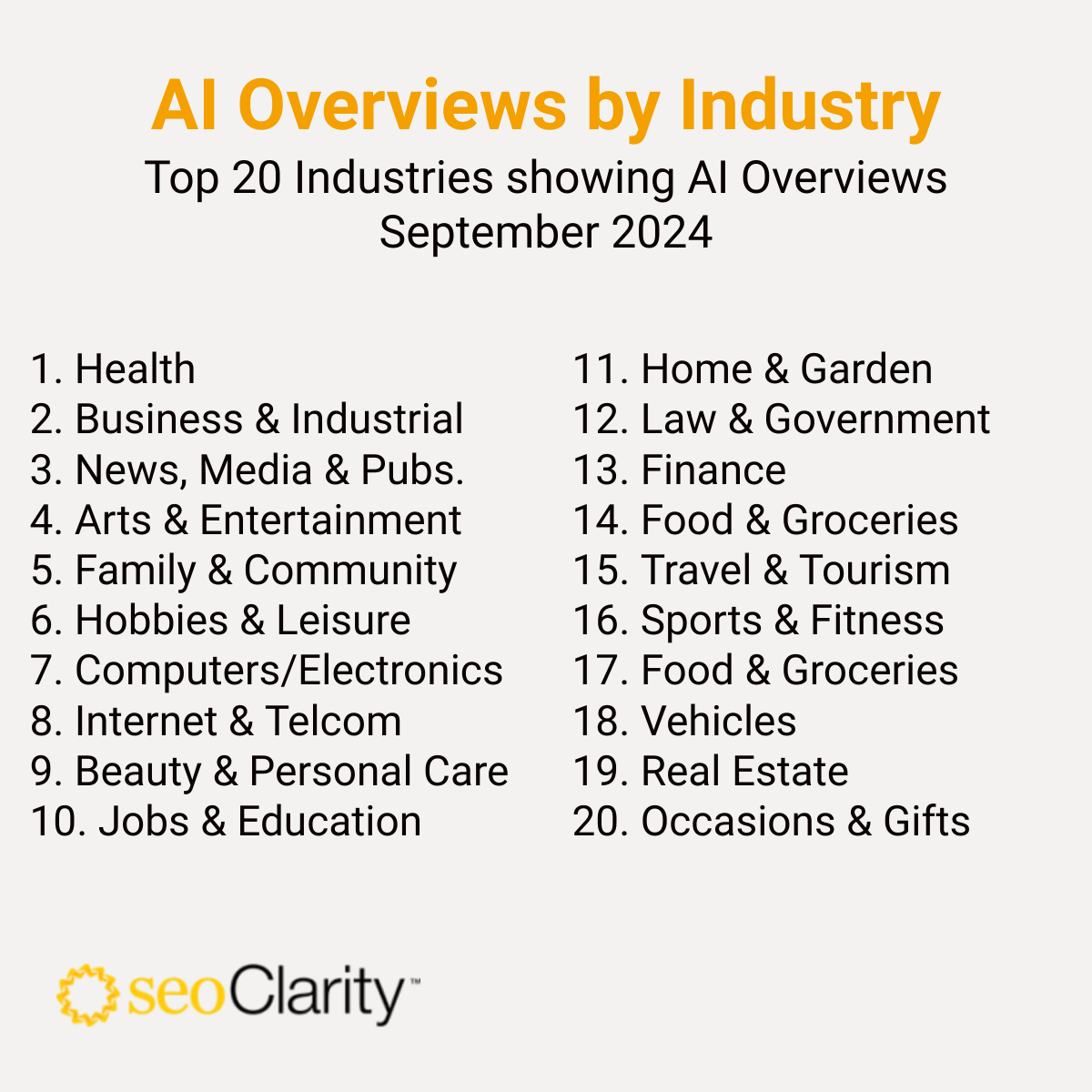
Even if mediocre content did allow you to rank well, it almost certainly won’t drive new patients, customers, or clients, rendering its business impact negligible.
In this sense, using AI-generated content is similar to hiring an inexperienced, low-cost writer and publishing their work without thorough oversight. For digital health brands, where authenticity and expertise are essential, this approach simply won’t cut it.
Alternatively, digital health brands should be strategic about how they incorporate generative AI tools into their content production process to ensure they still create high-quality and trustworthy content.
Four Ways to Incorporate AI Tools Into Your Digital Health Content Process
Below, we highlight four tactics digital health brands can use to maximize the benefits of AI tools in their content production process without compromising on quality or accuracy.
1. Use AI as Your Brainstorming Partner
Instead of relying on AI to fully produce your content, utilize it as a powerful brainstorming and planning tool for:
- Content Ideation & Outlining: Generate thorough briefs, structure content effectively, and uncover subtopics or questions you might overlook.
- In Depth-Research: Once you generate your content briefs, leverage emerging AI tools like Google’s Deep Research to condense days of academic and scientific research into minutes.
- Internal & External Linking Recommendations: AI tools can identify related pages on your site and reputable external sources for citations, reinforcing your site’s credibility compared to competitors.
Plugging AI tools into these areas of your content planning process will make your workflow more efficient and create a better end product.
2. Develop Tailored CTAs and Persona-Driven Insights
AI can help you resonate deeply with your audience by crafting tailored CTAs and aligning your messaging with your ideal customer or patient personas:
- Persona-Specific Review: Train AI with your brand’s customer personas. This will help AI tools improve your content to better speak to the exact needs and pain points of your target audience.
- Dynamic Calls-to-Action: Create customized CTAs that directly address your audience’s specific anxieties, concerns, or motivations, significantly boosting conversion rates.
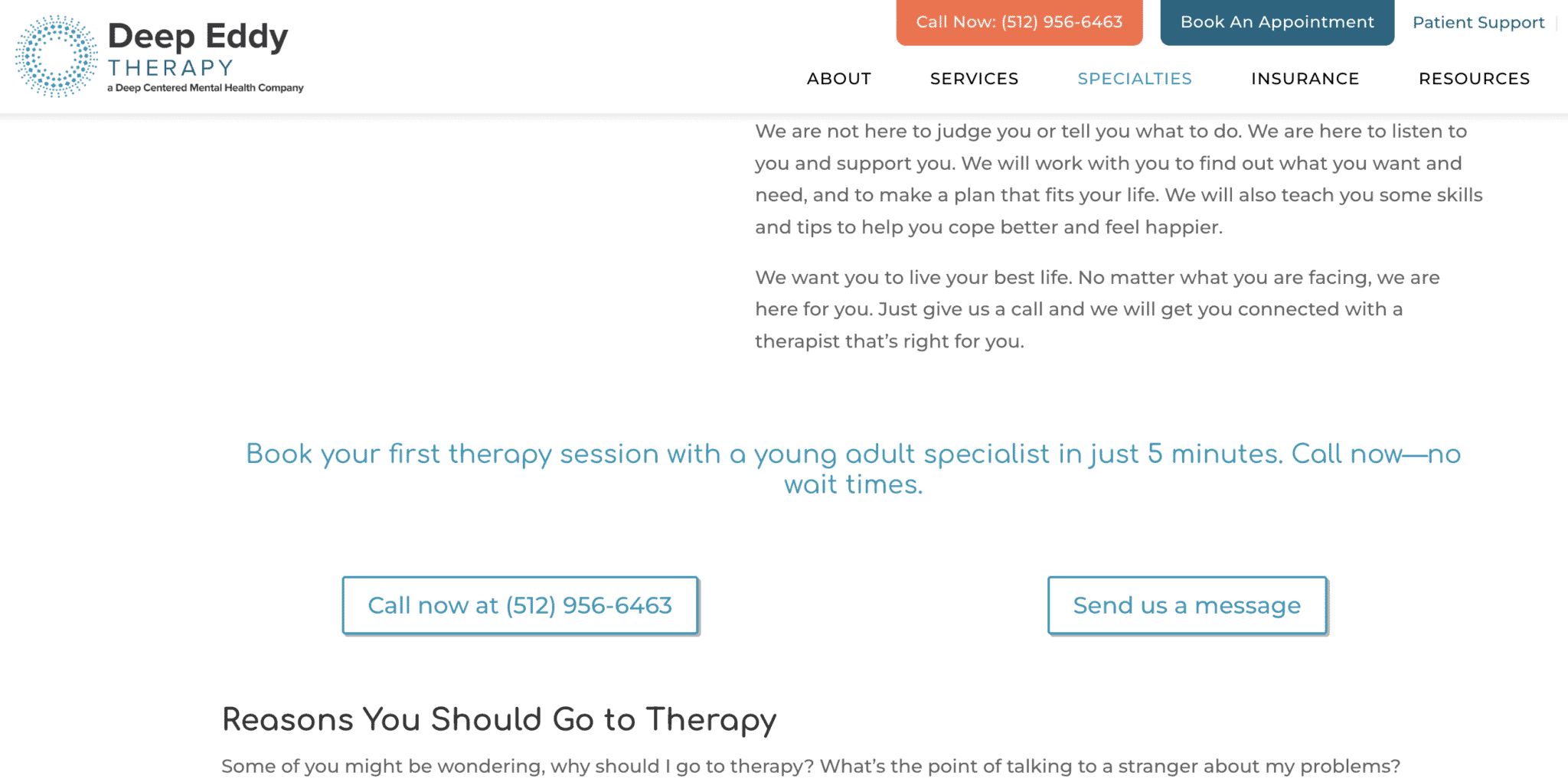
With proper training, AI tools can serve as your always-on focus group, providing real-time recommendations to help your content better resonate with—and convert—the populations your business was created to serve.
3. Anticipate Your Audience’s Needs
One of the most valuable uses for AI in content marketing is its ability to anticipate audience needs and adapt your content accordingly:
- Next-Question Identification: AI can predict follow-up questions your readers might have, enabling you to expand the FAQ section of your piece or inform future content pieces proactively. This will guide your users further into your site and keep them engaged for longer.
- Audience-Centric Iterations: Regularly analyze how your content performs with your core audience segments using tools that track behavioral patterns, engagement drop-offs, and conversion metrics. Based on this analysis, refine your content to better resonate with your audience. For example, if users aren’t engaging, AI can pinpoint problem areas and suggest clearer phrasing, improved content structure, or messaging tweaks that align more closely with audience needs.
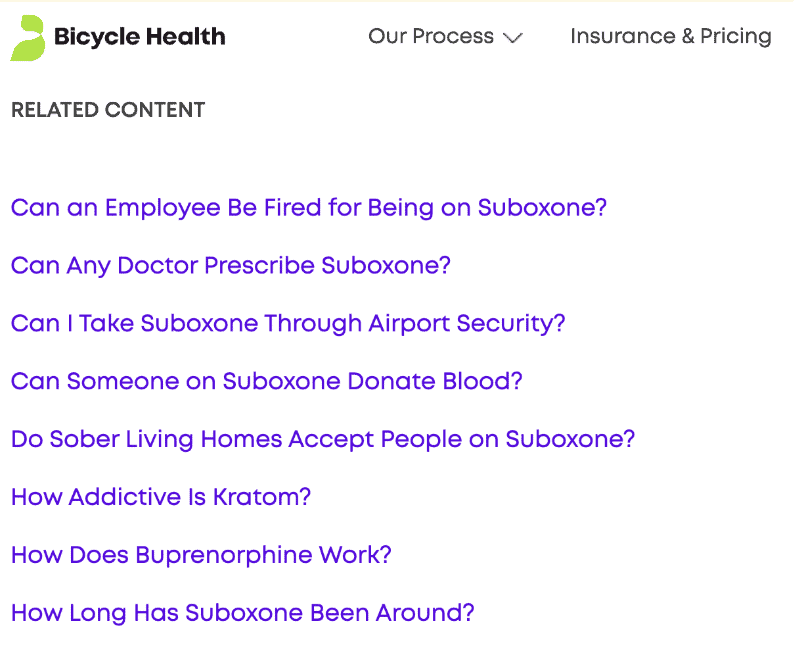
By using AI to make audience-focused updates, you can improve engagement and drive more conversions through your digital health content.
4. Blend AI-generated Ideas With Real-World Human Expertise
At the very least, all AI-assisted content should pass through a rigorous human review process. We recommend ensuring medical professionals or specialized medical writers vet and edit all AI-assisted content.
This not only guarantees accuracy but also infuses the content with your unique brand voice and authoritative insights. It also allows digital health brands to note on-page that the content has been reviewed by a medical expert, further bolstering its authority.
These strategies allow digital health brands to use AI tools to streamline content creation while avoiding the quality issues that can arise from relying on AI-generated content.
When DOES AI-generated content make sense for Digital Health Brands?
While AI-generated content is often lackluster on its own, by feeding it unique, relevant data, you can turn unoriginal copy into something that presents real value to your audience. A particularly effective approach is using AI to create dynamic content from your proprietary data sources:
- Localized Health Data: Tie city-specific disease prevalence data or treatment outcomes into unique, engaging copy blocks.
- Customized Testimonials & Statistics: Deliver powerful, locally relevant testimonials or success metrics without resorting to repetitive copy.
- Condition & Treatment-Specific Insights: Generate highly targeted and personalized content around prognosis, condition prevalence, or treatment effectiveness.
This method elevates your content’s value, providing audiences with unique insights they won’t find elsewhere.
Bottom Line: AI Tools Can Fuel Your Organic Lead Gen, If You Use Them Right
In 2025, successful digital health SEO isn’t about choosing between human creativity and AI efficiency—it’s about strategically blending both. AI should streamline, strengthen, and scale your content efforts, but expert human oversight remains critical to building genuine connections, trust, and authority in the healthcare landscape.
At Fire&Spark, we help digital health brands leverage generative AI smartly, effectively, and safely. Curious about integrating AI to scale the organic growth of your business? We help brands adapt their digital health content approach with SEO strategy sessions, deep dives that assess its impact on your revenue, generative AI search audits, and more.

Noah Goldfarb is Director of Client Services at Fire&Spark, an SEO agency that specializes in scalable organic growth strategies for digital health brands. Noah leads the development of data-backed, conversion-focused digital health SEO strategies for brands like Bicycle Health, Allara Health, and Form Health. Get in touch with him for a free SEO consult.

